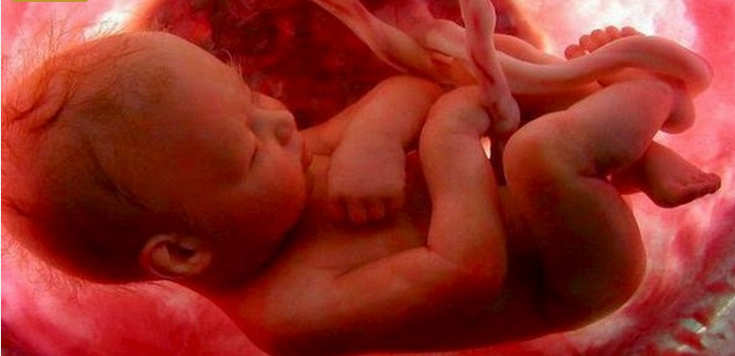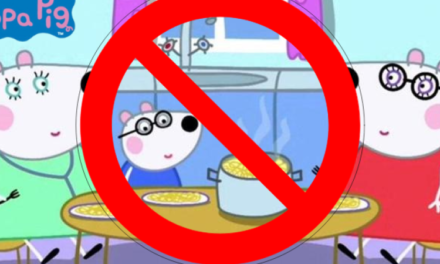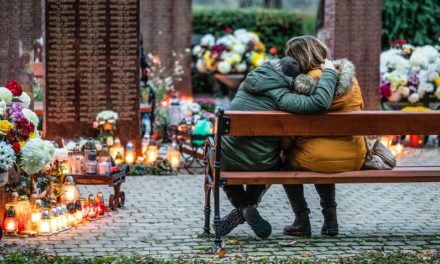The abortion lobby is deeply silent about the fate of the protagonists.
There have been serious abuses and procedural errors in several key cases in US abortion regulation; and the protagonists of several Supreme Court decisions later became pro-life, or were already pro-life. However, the pro-abortion camp is deeply silent about them, as well as about those former abortion clinic workers who openly undertake to protect life.
The Week detailed the legal and social consequences of the 1973 Roe v. Wade case in the United States and beyond in an article entitled Abortion Celebration in New York
Roe, under whose name nearly sixty million fetuses were killed
At the center of the case is one of the emblematic anti-heroes of abortion history: Norma McCorvey. The case of Jane Roe, who is widely known by her pseudonym, is a textbook example of the fundamental contradictions surrounding the activities of left-wing "rights defenders" and (following the widespread English translation of social justice warrior) "social justice warriors".
In the case bearing his name, the American Supreme Court (LB) legalized abortion in 1973 at the federal level, i.e. in a mandatory manner for all fifty American states. This decision gave a great impetus to the forces promoting the free self-determination of women throughout the Western world - in fact, the Supreme Court of most European countries also issued an official position on abortion at this time, usually Roe v. Wade, which the pro-abortion camp has considered a landmark ever since.
Norma McCorvey, when she was pregnant with her third daughter by a third man at the age of twenty-two (he gave birth to her first two children, but did not raise her), did want to abort her, but according to Texas regulations, she could only do so in the case of proven rape and incest.
Although she tried to present her pregnancy as the result of a violent crime, she was unsuccessful due to a lack of evidence.
That's when two female lawyers, Linda Coffee and Sarah Weddington, hugged him. McCorvey later realized that the lawyers had abused her vulnerable position, since they had not even informed her before the legal battle that she would give birth to her child sooner than the court's decision. The two legal fighters had actually already prepared their case against what they believed to be strict Texas regulations, and they were met by a pregnant mother who wanted to abort her child, but
they were not interested in the fact that the lady herself would not be able to "profit" from a possibly favorable decision.
By the time the judgment came to light in 1973, the plaintiff's daughter was already two and a half years old and, like her other two half-siblings, was placed in foster care. At that point, McCorvey no longer followed the aftermath of the case, he himself learned about the decision from the newspapers. Based on his own account, he did not fight for abortion rights with a general argument at all - he only wanted to obtain one abortion legally: his own.
He came to the public in the 1980s, when he called the decision of the LB his "own law" and was one of the advocates of pro-abortion. However, his deviant, alcoholic and lesbian lifestyle, as well as his low social status, made him unsuitable for the majority of liberals to identify with him as a role model. For McCorvey, this led to a growing disillusionment, culminating in his work at an abortion clinic in Dallas, when he saw many women view infanticide as a means of protection, and
once he wandered into the room labeled "Body Parts", where the limbs of dismembered fetuses were lying in piles, he realized the "flesh and blood", murderous reality of abortion.
He finally became disillusioned with the object of his former struggle and declared that he would "dedicate the rest of his life to nullifying the law that bears his name." He publicly burned the court decision during a demonstration and tore it up in front of the Mississippi legislature.
In 1994, McCorvey published his autobiography, I Am Roe: My Life, Roe v. Wade, and Freedom of Choice , or "I Am Roe: My Life, Roe v. Wade, and Freedom of Choice . Based on his story, one year later, in 1995, he accepted Jesus into his heart and was baptized in an evangelical environment, as a result of which his life took a hundred and eighty-degree turn. She went from being an abortion clinic worker to becoming a pro-life activist as a result of the testimony of Christian activists working alongside the clinic. He also wrote a book about his conversion entitled Won By Love.
After that, Norma McCorvey became a vocal advocate of the pro-life camp, spoke several times at the famous March For Life parade, and was also active in the pro-life organization Operation Rescue.
For a long time, she was tormented by her lack of courage and deep sense of responsibility stemming from her sense of shame, that although she never had an abortion, she became the "face" of it in America in connection with her far-reaching case, however, according to her own words, she handed over the terrible burden of responsibility to God. Later, he founded his own non-profit organization called "Roe No More". “I am 100 percent pro-life,” he declared in 1998, adding, “I do not believe in abortion even in the most extreme situations; if a woman becomes pregnant as a result of sexual violence, it is still a child - and no one can act as his own god."
McCorvey passed away two years ago in February 2017. As we wrote in the issue of Hetek at the time, following the turn in her life, the lady submitted a request for a retrial in her own case, to which she attached six thousand pages of testimony from about two thousand women who testified in writing that they regretted the abortion, for which they had previously been on the operating table. However, neither this nor the constitutional amendment initiative of anti-abortion senators and congressmen ("Right to life") resulted in a change in the case - abortion in America seems to have a concrete legal basis since the Roe v. Wade decision.
Doe, whose destiny was grossly abused
Less well known is the case of the Georgia woman whose case was decided by the Supreme Court on the same day as Roe v. Wade. This time they used the pseudonym Mary Doe, and this outcome of the Doe v. Bolton case is responsible for the fact that since then the concept of maternal health has become the most broadly understood category in the United States. According to this, there is not only physical health in the strict sense, but also mental, psychological, age-related, family and similar health in the sense of the Supreme Court.
This gives mothers who want to abort their child even in the third trimester, up to the moment of birth, a virtually unlimited reference base.
Even fewer people know, however, that the lady whose name the case bears, did not want an abortion case at all, or even an abortion! At least that's what he said after Sandra Cano went public under her name Mary Doe. He maintained that until his death
the lawyer, whose help she asked at the time, when she was still 22 years old, simply scammed her.
In her sworn testimony, she testified that she sought legal help because she wanted to divorce her husband (who, it turned out, had been convicted of child molestation and other violent crimes) and she wanted to settle the case of her three children (who were then placed in foster care). According to his testimony, he naively did not read the complex legal documents placed in front of him, but trusted his legal representative and signed them.
She never dreamed that her case would reach the Supreme Court, where a decision would be made that would define abortion regulation in the United States for decades.
She herself found out which way the wind was blowing when one day her mother (who herself thought that it would be better for a woman with a disorderly life to terminate the pregnancy) and her lawyer arranged for her to wait at the clinic for abortion treatment. Cano immediately protested the intervention, but by then the fight for his "right" had caught wind.
“I became a mere symbol in Doe v. Bolton while my own circumstances and experiences were ignored and misrepresented. In the end, the court made its harmful decision without hearing me and against all the evidence
- he declared back in 2003. The only tangible evidence is a (according to Cano) falsified confession by Cano that she wanted an abortion but was unable to in Georgia. The prosecutor involved in the case also said afterwards: it seemed that the court was not even particularly interested in whether the plaintiff was pregnant at all or not...
Of course, Sandra Cano also gave birth to her fourth child, whom she gave up for adoption. She was not an exemplary mother, but she was always on the side of life and never supported feticide. When her adult children later also had children, Cano said, "I had to become a grandmother in order to know what it's like to be a mother" - because she is raising her two grandchildren herself. It is not known exactly when and how, but she converted to Christianity, and in the spirit of this, she tried to do everything in the pro-life camp to tighten the restrictions on abortions. Pro-life Catholic priests helped him in the struggle.
Sandra Cano tried to have her case reopened and overturned before both Congress and the Supreme Court.
He submitted many thousands of pages of material to the court, including thousands of witness statements, in which mothers say how harmful abortion was for them. The court rejected the woman's request.
In 1997, she declared: "As long as I live, I will fight to abolish abortion in America!" He even teamed up with Norma McCorvey to do so. Until her death in 2014, the lady was tormented by the knowledge of the many abortions that were partially made possible by the decision bearing her pseudonym. He was seriously ill and died at the age of 66. Shortly before that, she told mothers in crisis: "During a difficult period, we cannot allow ourselves to make decisions based solely on our reaction to pain. (…) It is vitally important not to allow any pain to influence our decision and to know that it is possible to make a decision that expresses our love. Even adoption can be a certain expression of love in such a situation, because the mother is expressing that she loves that child more than her own pride.”
And those who recoiled
Norma McCorvey was not the only one whose conversion was influenced by what she saw at the abortion clinic. More than one pro-choice activist and doctor was shocked by the cruelty when faced with it in its entirety. Abby Johnson's famous case is a big slap in the face for pro-abortionists, as she left behind the infamous abortion organization Planned Parenthood.
As the former director of an abortion clinic, Johnson revealed his story in recent years, which is also being made into a movie. He was involved in the pro-abortion campaign while still at university, until he finally became an employee of a clinic in Texas. In 2008, he was chosen as the employee of the year. She herself went through two abortions, until in 2009, due to a lack of staff, she too was called to the operating room to assist.
She was shocked at how much the 13-week-old fetus resembled the child she had given birth to in the meantime.
The minutes spent in the operating room completely transformed his way of thinking. He saw the fetus literally running away from the suction tube that was being used to suck it out of the womb. She had to watch the whole time on ultrasound as the fetus finally in a moment “really squishes out like a little rag, squeezes until it is completely folded into itself and disappears from my sight in the tube. The last thing I saw was the perfectly formed small spinal column disappearing into the suction cup - he recalls the horror in his memoirs.
Within a few weeks, he quit his job and became a pro-life activist. "God made things this way for me, and it would be a mistake to turn away from what was planned for my life," she later said when Planned Parenthood publicly attacked her for switching sides just for fame.
Johnson created a foundation to help women who work at abortion clinics leave their old jobs and find new jobs. So far, five hundred clinical workers have been assisted in changing careers. The lady converted to the Catholic faith and she and her husband had 8 children. A film about his life will be released this year, the main character of which, Ashley Bratcher, found out during the filming that her own mother had also considered abortion when she was pregnant with him, but ended up aborting it.
Similarly, the case of Florida gynecologist Kathi Aultman, who also became one of the local leaders of Planned Parenthood, became famous. Afterwards, he admitted that he only approached the whole issue from a cold scientific point of view, so much so that in the end he was able to send the various torn body parts for pathology without emotion. "I didn't see any problem with that. My baby was wanted, hers was not; and I saw that it did not particularly bother them.”
In an interview with CBN, he reported that doubts arose only when he was transferred to the intensive care unit for premature babies of the exact age that he had killed in the womb without any problems.
But then, he says, he quickly dismissed the doubts. He really started to think when a girl came to him for an abortion for the third time. She asked the hospital manager to relieve her of the task, believing that the girl "uses abortion as contraception," but the management refused her request, saying that she had no right to make decisions in such situations (!).
The other shocking case for him was a lesbian couple, one of whom became pregnant, apparently due to a heterosexual misstep. The couple turned to her for help, and at the clinic, the expectant mother's friend blurted out angrily: “Do you want to see the tissue? I certainly don't want to see it; just kill him now!" In a third case, a crying mother of four approached him, who was forced by her husband to intervene, saying that they did not have the money for a fifth child.
These three cases really shocked Aultman to the fact that the mere fact that a child is unwanted does not give grounds for killing it. In 1983, he visited an evangelical church, consulted with the pastor, and quickly became a born-again Christian. According to his confession, it took time for him to understand who Jesus was and how he could change his heart, but in time the complete turnaround came.
While studying the Nazi mass murders, he realized that he himself had acted as a mass murderer in the operating room.
He needed serious spiritual care to process his actions, but according to the interview, Aultman learned to forgive himself and accept that God had forgiven him. She has since retired and fights for fetal life at the highest possible levels. In 2017, she also spoke before Congress in Washington and called for the adoption of a law that would ban abortion as soon as the first heartbeat of the fetus becomes perceptible.
Featured image: Shutterstock












